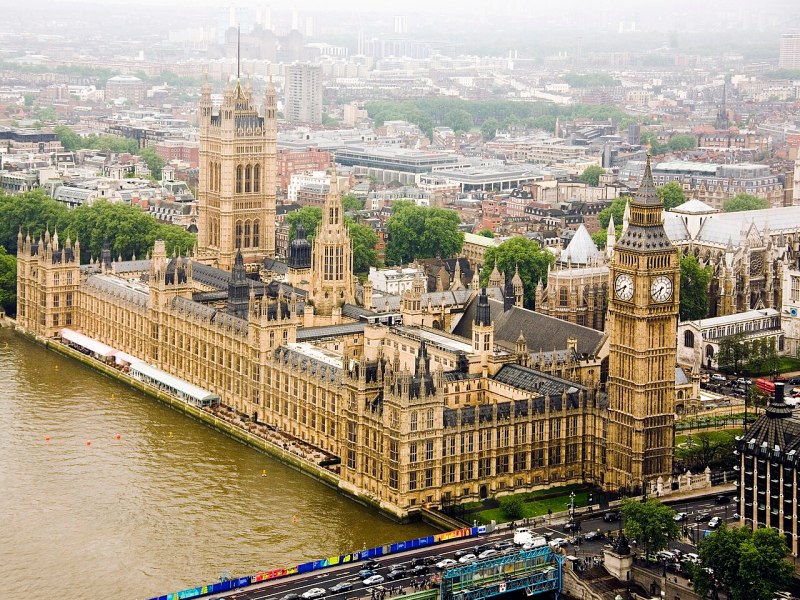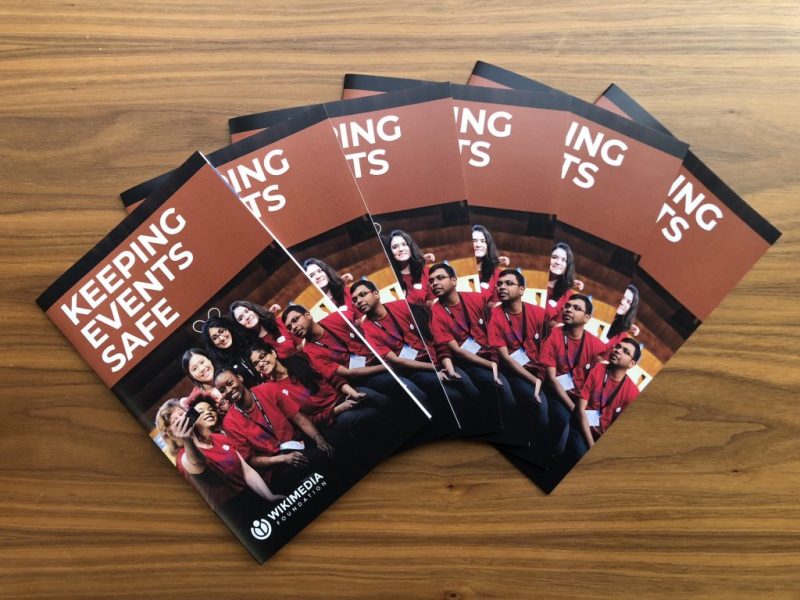Update: On 30 June, the Wikimedia Foundation, Wikimedia UK, and fellow organisers and backers of public interest projects published an open letter to the UK Government and Parliament calling for an exemption from the Online Safety Bill. We invite everyone in the UK who cares about Wikipedia and the future of free knowledge to join us and sign the letter and spread the word on social media using #ForFreeKnowledge. Read the blog below to learn more about how the Online Safety Bill threatens the survival and welfare of projects that prioritise the public interest over profits.
Wikipedia is best known as the global encyclopaedia that anyone can edit. More profoundly, it is a platform through which diverse communities share and receive knowledge across generations, cultures, and borders in over 300 languages. In the UK, it is also a lifeline for helping to preserve Indigenous and minority languages. Take, for example, the Welsh language version of Wikipedia: with over 7.5 million views every month, it is the most popular Welsh language website in the world. It is now part of the secondary curriculum in Wales, within a module of the Welsh Baccalaureate.
Wikipedia and its sister Wikimedia projects, hosted by the non-profit Wikimedia Foundation, are largely built and governed by volunteers. They serve as vital forums for people to share and access information that impacts their lives and shapes their decisions. Recent research published by Wikimedia UK, an independent UK charity that helps communities across the country to contribute to Wikimedia projects, found that active participation in these projects not only builds information literacy, but it also helps to boost citizen engagement in democratic processes.
Yet, Wikipedia, an invaluable resource for the UK’s increasingly diverse communities, is now at risk.
The Online Safety Bill, expected to become law in a matter of months, includes provisions that threaten volunteer-run, non-profit public interest projects like Wikipedia. For years, Wikimedia UK and the Wikimedia Foundation have expressed concerns about the Bill — mainly that its requirements around content moderation, age-gating, and user verification are incompatible with the way in which information on Wikipedia is created and curated, as well as the website’s commitment to user privacy and freedom of speech.
As the Bill now heads into its final stages in the House of Lords, our core concerns remain, and we are calling on the UK Government to take action to exempt us from the Online Safety Bill, and preserve the very best of the internet for future generations.
Our concerns about the Online Safety Bill
As it is currently written, the Online Safety Bill could require the Wikimedia Foundation to collect data about Wikipedia users’ identities, track their actions, intervene in their editing processes, and interfere with their ability to set and enforce rules for what constitutes well-sourced neutral content about a given subject. Such requirements are counter to Wikipedia’s editorial guidelines and policies, as well as its privacy policy.
In short, the requirements would jeopardise volunteers’ ability to contribute to the website and offer linguistically relevant cultural and educational content — including information that reflects and serves the lives and experiences of minorities and historically marginalised groups.
The Online Safety Bill will not only affect Wikimedia projects in the UK; it will also have global implications. Many thousands of volunteer contributors to Wikimedia projects are based in the UK. Images and other content shared to the platform by Wikimedia UK’s world-leading cultural sector partners — such as the British Library, National Library of Wales, and Wellcome Collection — reach users all over the world, with this content receiving, by Wikimedia UK’s count, some 10.4 billion views in 2022.
The possibility that Wikimedia projects may fall foul of the Online Safety Bill has clear and serious implications for the entire information ecosystem, within the UK and beyond.
Our call to action
The Online Safety Bill will establish a new regulatory framework for certain online services, including user-to-user services (such as Facebook or Twitter) and search services (such as Google or Bing). During the debates within the House of Lords, legislators from all sides of the House have made it clear that protecting children and young people from the harm that they may encounter online is of paramount importance. Wikimedia UK and the Wikimedia Foundation wholeheartedly agree with that aim. Wikimedia UK advocates the importance of information literacy skills, delivering thousands of hours annually to develop young people’s skills in how to navigate and understand the online world. What deeply concerns us are the unintended potential consequences of the Bill for free knowledge and public interest projects.
Although community-moderated, open source websites like Wikipedia are not the target of this legislation, they have been tangled in its wide regulatory net. In an attempt to weed out the worst parts of the internet, the Online Safety Bill actually jeopardises the best parts of the internet.
During earlier stages of debate in the House of Lords, many peers expressed the view that Wikipedia should not be encompassed in the Bill’s purview, since it was designed with a focus on algorithm-driven social media websites and commercial platforms. It is time to ensure that public interest websites like Wikipedia, along with open-science initiatives and crowdsourced UK heritage projects, will be protected. The reality is that this far-reaching legislation is simply incompatible with our distributed, volunteer-run content model.
Without an amendment exempting such public interest projects from the Bill, the decision of how the legislation will apply in practice to those projects (and how it should be enforced in the event of their noncompliance), will be left to the UK internet and media regulator, the Office of Communications (Ofcom) — which has the power to change its decisions and policies at any time. This lack of clear legal protection for Wikipedia and other public interest projects is simply not good enough.
The value of Wikipedia and other public interest projects to UK society must be recognised and protected in law now, not subject to shifts in the political agendas of governments and regulators in the future.
The window of opportunity to protect Wikipedia for generations to come is closing. We hope the UK Government will take swift action to protect the best parts of the internet — public interest projects like Wikipedia that uplift civic society and promote access to knowledge online.
Lucy Crompton-Reid is Chief Executive of Wikimedia UK. Rebecca MacKinnon is Vice President of Global Advocacy at the Wikimedia Foundation.



